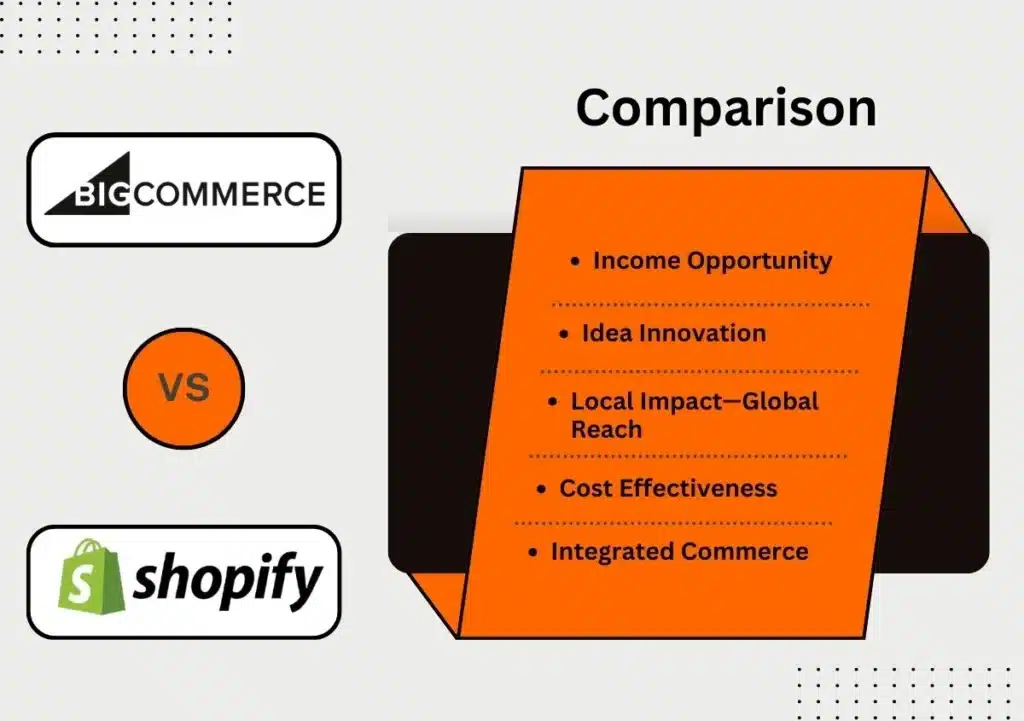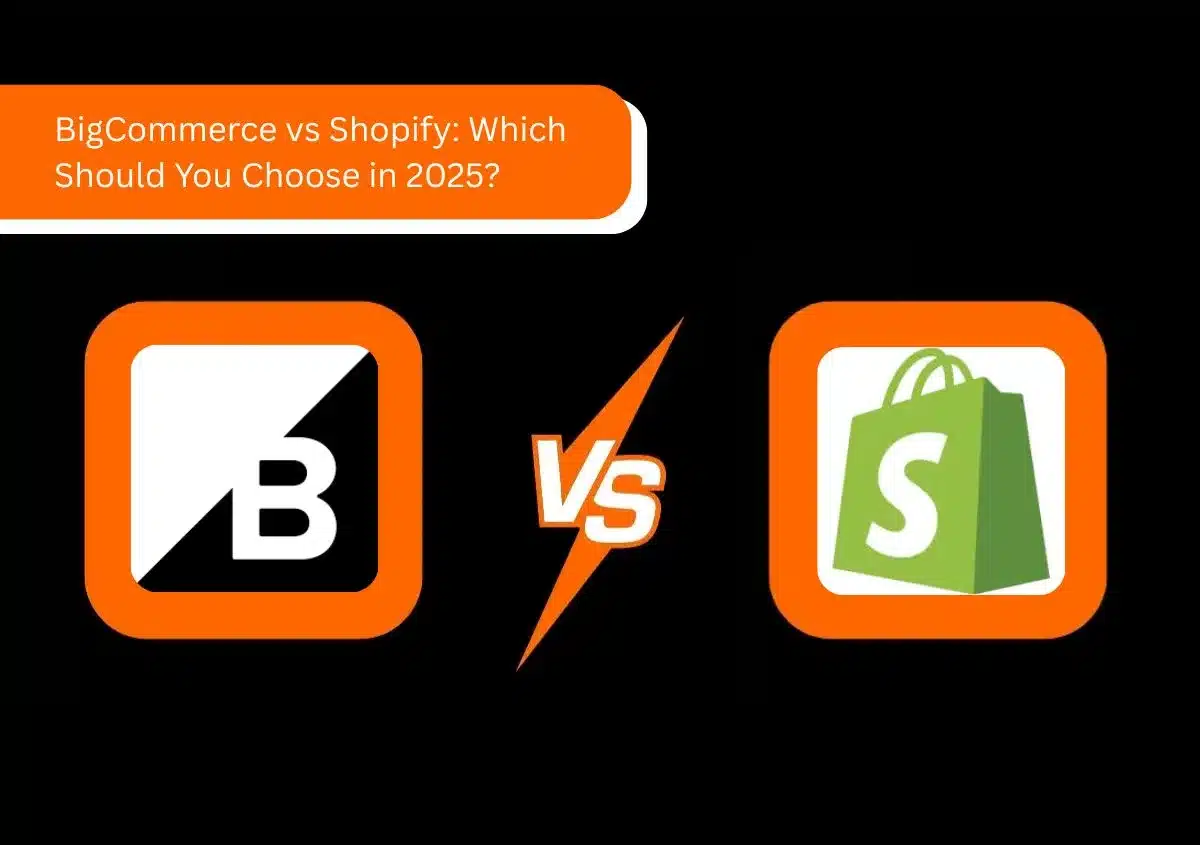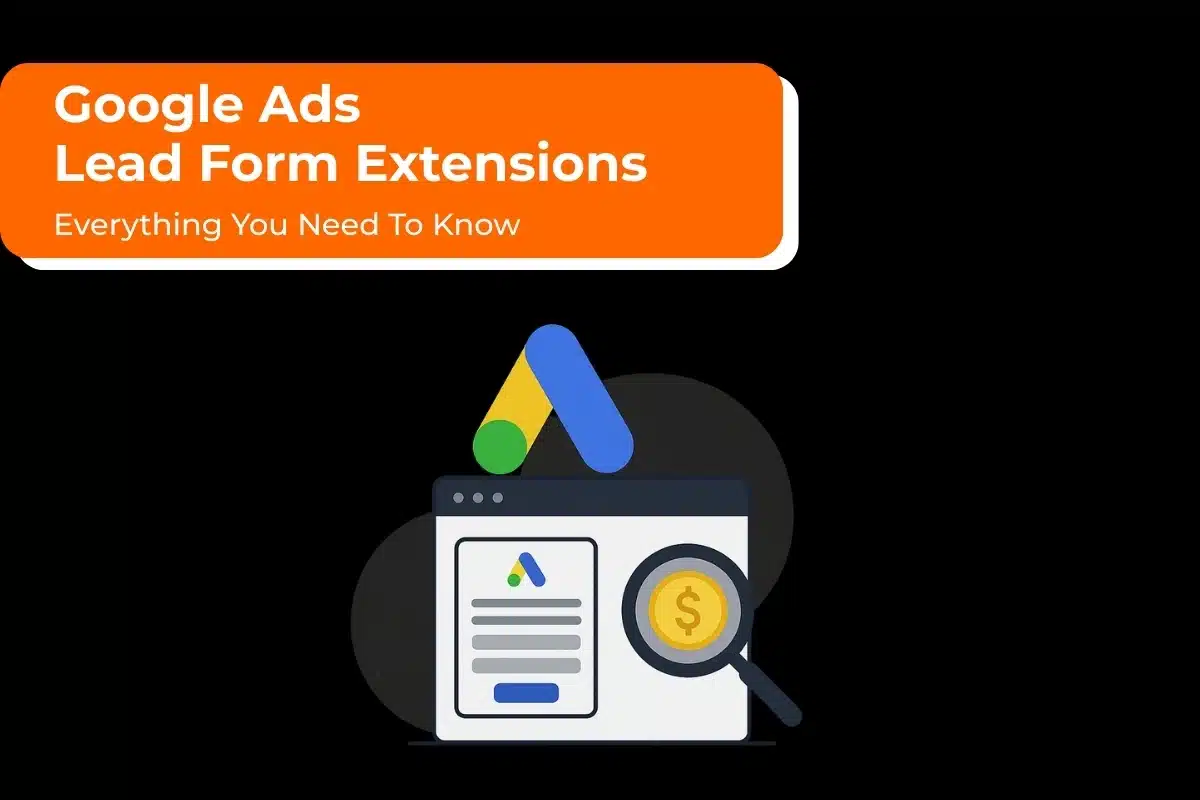The e-commerce space is poised to become even more dynamic and profitable this year for companies around the globe. To reach its endless possibilities, there’s one critical piece you can’t overlook—your platform.
So, today let’s pit BigCommerce against Shopify – the heavyweights of the industry face off. Many native features on each platform are geared toward providing support to the varied needs of online store owners. Here’s what you need to understand – just because one of these platforms brought in a lot of money for them, doesn’t mean it’ll be the answer for you. Your business objectives, audience, product niche, and everything else can vary wildly. So, how to decide which is the best fit for you? By clearly knowing the advantages as well as shortcomings of each platform. Join me today as I walk you through both of these e-commerce platforms.
What is Shopify?
What if I were to say that one little e-commerce platform makes it possible for over 24 million small businesses to operate in over 175 countries? That it has reached a point where it is now one of the world’s most trusted platforms. This in a nutshell, is Shopify. This makes Shopify the most robust platform built only for e-commerce stores. So what is the secret sauce that has made it so popular? With intuitive design and powerful tools, Shopify enables every entrepreneur and business startups to big enterprises, to easily start, grow, and handle their e-commerce store.
Here’s why Shopify is the best fit for your business.
- Multi-location marketing is made easy with a rich app ecosystem of seamless integrations, blazing a trail through marketing, inventory, and customer engagement.
- Unparalleled scalability that scales your business from a small business to an enterprise.
- Global commerce tools such as Markets Pro make selling internationally a breeze.
No matter if you’re a small business or a multi-location enterprise, Shopify’s dedication to constantly improving means you’ll always be equipped with the best tools in the industry. It’s meant to help your whole journey into digital commerce be as easy and profitable as possible.
Want to harness Shopify’s full potential? Contact our Shopify experts today and watch your business thrive!
What is BigCommerce?
BigCommerce is a highly customizable, enterprise-level e-commerce platform that’s built for large businesses with extensive product catalogs. It’s a great option for merchants that want a lot of functionality baked in, rather than using apps as the crutch.
What makes BigCommerce stand out?
- No transaction fees on all of our pricing plan
- A wealth of built-in tools, from SEO centralization to discount automation.
- Ideal for retailers with extensive assortments.
BigCommerce offers strong out-of-the-box capabilities, but it doesn’t come close to competing with Shopify’s unbeatable scalability, innovation, and ease of use. Ironically, most merchants are upset to learn that they require third-party apps to obtain the kind of robust functionality that Shopify provides out of the box.
Shopify vs. BigCommerce – A Quick Comparison

Deciding between Shopify vs BigCommerce? Here’s how they compare side by side.
Income Opportunity
Shopify’s one-page checkout process increases conversions by as much as 12% over BigCommerce, making you more money with every sale.
Idea Innovation
Shopify takes the cake for most consistent feature updates, with emerging features like Shopify Magic AI, while BigCommerce more frequently plays catch-up.
Local Impact—Global Reach
Shopify’s Markets Pro makes international selling a breeze with automatic currency conversion and tax handling. BigCommerce pushes these features to third-party apps.
Cost Effectiveness
Shopify’s total cost of ownership is 31% lower due in part to the lack of add-ons needed and its all-in-one platform.
Integrated Commerce
Shopify combines inventory, POS, and B2B systems seamlessly. BigCommerce often requires external tools, which can create inefficiencies.
Both platforms are strong contenders, but Shopify’s scalability, innovative features, and global commerce tools make it the better choice for growing businesses.
Key Features Comparison
Ease of Use – Which is Easier for Beginners?
Is an e-commerce platform making it strenuous for you to set up a store? That’s not good news. And that’s where ease of use comes into play. If you’re new to e-commerce, your platform should guide you effortlessly through the setup process.
Shopify takes the lead when it comes to simplicity. From the moment you sign up, it feels intuitive. Whether you’re just starting out or already have a business, Shopify tailors its onboarding experience to your needs. You’ll be prompted with easy-to-understand questions like where you plan to sell and what products or services you offer. The setup checklist is detailed yet clear, with 13 steps that cover everything from adding products to customizing your store. Even if you’ve never built a website, Shopify’s process makes it feel like a breeze.
If you’re a beginner, BigCommerce can be more challenging than Shopify. While it offers plenty of robust features, the onboarding process feels complex and less streamlined. You’ll have to fill out detailed information about your business before accessing its tools. From that point on, it feels like a time-consuming process. The dashboard is powerful but lacks the straightforward simplicity that Shopify offers.
Ultimately, Shopify’s user-friendly design ensures that even non-tech-savvy users can get their store up and running without frustration.
Themes and Design: Flexibility and Customization
Your website design can make or break first impressions. So, how can you make a great first impression? That’s why both Shopify and BigCommerce feature stunning templates. Choose from this vast array to create a visually stunning online store.
Shopify brings you more than 190 professionally designed themes. These work great for industries as diverse as fashion, beauty, and pet supplies. With 13 free templates and a wide range of premium options priced between $100 and $500, there’s something for every business. Shopify’s themes are not only aesthetically pleasing but also highly customizable, allowing you to tailor your storefront to match your brand.
BigCommerce offers similar options, with 12 free templates and premium ones priced up to $400. However, its templates lack the same polish and customization flexibility that Shopify’s themes provide.
For creative freedom and a more polished finish, Shopify shines as the better choice for eCommerce design.
Apps and Integrations to Expand Platform Capabilities
Setting up the store is just the beginning. To keep growing it, you’ll need the right tools. And that’s where apps and integrations gain significance.
Shopify’s App Store is huge. I mean really huge! It has over 8,000 apps ranging from marketing tools to inventory management. What are the additional functions you need? Do you want to improve SEO? Looking for options to streamline shipping? Or do you want to increase customer engagement? Regardless of what your needs are, Shopify’s apps offer endless possibilities. Some popular apps include Oberlo for dropshipping, Yotpo for reviews, and Klaviyo for email marketing. These tools let you create a customized eCommerce experience tailored to your business.
BigCommerce, on the other hand, relies less on apps because many features come built-in. For example, you’ll get unlimited staff accounts, product reviews, and real-time shipping quotes as part of your plan. Its App Store, while smaller (1,200 apps), covers essential needs like checkout optimization and shipping.
Shopify’s app-heavy model is perfect if you want maximum flexibility and personalization. But if you prefer a more plug-and-play approach without extra costs, BigCommerce might suit you better.
Pricing and Value for Money
You’re sure to love the pricing available from Shopify. Whether you have a small store or a popular store with an international presence, its transparent and flexible pricing structure works great. Shopify’s three pricing tiers—Basic, Shopify, and Advanced—are tailored to meet your needs.
Here’s a quick breakdown of Shopify’s plans:
- Basic: $29/month – Perfect for new businesses.
- Shopify: $79/month – Offers advanced features like professional reports.
- Advanced: $299/month – Ideal for large businesses with extensive needs.
One standout feature is Shopify’s introductory offer, allowing you to try the platform for just $1 for the first month. Combine this with a three-day free trial, and you can explore Shopify’s full suite of tools with minimal risk.
Transaction fees can be a concern for businesses, but Shopify has you covered. By using Shopify Payments, you can lower transaction fees as you upgrade your plan. For example, Basic plan users pay 2.9% + $0.30 per transaction. But if you have chosen the Advanced plan, you can enjoy reduced rates of 2.5% + $0.30.
BigCommerce Pricing Tiers
BigCommerce has an edge with its transparent tiers and the absence of transaction fees, making it an attractive choice for businesses wanting predictable costs.
BigCommerce offers three pricing plans:
- Standard Plan: Priced at $29/month, this plan is a good option for startups or small businesses with basic needs.
- Plus Plan: Perfect for growing businesses, this plan costing $79/month offers advanced marketing features like abandoned cart recovery.
- Pro Plan: Designed for high-volume stores needing powerful analytics and customizable options, this plan is a steal at $299/month.
BigCommerce’s biggest advantage? No transaction fees. Whether you’re just starting or processing thousands of orders, you don’t need to worry about additional charges eating into your profits.
For added convenience, BigCommerce also includes a 15-day free trial—a fantastic way to explore the platform’s robust features risk-free.
Looking for value without surprises? BigCommerce might be the budget-friendly choice your business needs.
However, Shopify is an excellent choice for growing businesses. It offers the best of everything – affordability, features, and value. The cost of transaction fees is easy to justify as your store scales.
When it comes to pricing, BigCommerce has an edge with its transparent tiers and the absence of transaction fees, making it an attractive choice for businesses wanting predictable costs.
Payment Options
This is where Shopify truly shines! It offers over 100 integrated payment gateways, including PayPal, Google Pay, and Apple Pay. Wondering why this is important? This variety of payment options offers your customers more flexibility at checkout. They’ll look forward to shopping with you due to the ease of payment and checkout.
For example:
- On the Basic plan, you’ll pay 2.9% + $0.30 per transaction.
- On the Advanced plan, this drops to 2.5% + $0.30, helping you save as you grow.
In contrast, BigCommerce also offers an advanced payment system with over 65 gateways, including Stripe and PayPal. But, it lacks a built-in payment solution like Shopify Payments. One advantage of BigCommerce is its no transaction fees policy, which could appeal to some businesses.
While BigCommerce is a solid option, it does impose sales caps on its plans, limiting scalability unless you upgrade to a higher-tier plan. For businesses planning long-term growth, Shopify’s seamless payment integrations and flexible pricing structure make it the smarter choice.
Thinking of switching to Shopify? Our Shopify agency offers expert migration services!
Performance and Scalability
Speed and Reliability
Speed and reliability are essential for any successful online store. You get both with Shopify – lightning-fast load times and exceptional uptime. This way, your store stays open 24/7 without interruptions.
BigCommerce also provides fairly reliable hosting services. However, some users report occasional scalability issues under heavy loads. While it offers consistent performance for small to mid-sized stores, Shopify’s architecture is specifically optimized for high reliability and speed, even as your business grows.
So, partnering with Shopify helps you provide enjoyable shopping experiences that keep customers coming back.
Are you set to grow your store’s performance? Contact our Shopify experts today for customized solutions!
Scalability for Growing Businesses
Keen to grow your online store? Shopify has powerful tools and integrations to help you grow your business. Scaling your business becomes smooth and effortless with these tools. Plus, it has features like built-in SEO optimization and advanced analytics to help you expand your reach. Shopify’s infrastructure also supports large product catalogs and high traffic without any performance dips.
BigCommerce comes with some excellent built-in features, like promotional tools and email automation, which work well for moderate growth. However, as your business scales, you may need extra apps to handle personalization or integrate with external platforms, increasing complexity and costs.
Shopify is reputed for its flexibility and unmatched ability to handle growing business demands. Need to manage thousands of SKUs? Planning to launch global campaigns? Shopify’s tools simplify the process.
Read Also: Best Shopify Apps to Grow Your Store in 2025
Sales and Marketing Tools
Sales Features
To grow your sales, you need to focus on customer engagement. It’s as simple as that. Both Shopify and BigCommerce equip store owners with features to keep their customers engaged and curious to check out your offerings. For instance, abandoned cart recovery and discount code notifications keep reminding users about your store.
Shopify has its AI-powered Shopify Magic tool that automates the creation of product descriptions. With this feature, you can save tons of time that would otherwise be spent on creating compelling, SEO-friendly content. On the other hand, BigCommerce offers its BigAI Copywriter app, which also generates descriptions tailored to your products. It’s a handy, free tool that makes managing your store more efficient.
Both platforms are robust when it comes to sales tools, but Shopify’s seamless AI integration and broader ecosystem of apps give it an edge for growing businesses.
SEO and Marketing Capabilities
If you need your customers to find you online, make sure you pay attention to SEO. Both Shopify and BigCommerce offer essential SEO features like sitemaps and image alt text. However, Shopify goes the extra mile.
It has the Ecommerce Booster app powered by Semrush offering you actionable recommendations to optimize your website for search engines. From keyword insights to on-page improvements, this app is designed to help you build a strong online presence.
BigCommerce offers excellent standard SEO tools, but its additional marketing options can feel limited without third-party integrations. But, Shopify integrates smoothly with social media platforms like Instagram and TikTok. As a result, it’s easier to reach out to customers across multiple channels. In terms of SEO and marketing, Shopify stands out as a growth-focused platform, offering both powerful tools and strategic partnerships to help your business succeed.
Customer Support and Community

By default, reliable customer support is the one aspect that every customer will expect from your side. To continue impressing your customers, you must receive the same kind of customer support from your hosting partner as well. Take a quick look at Shopify and BigCommerce support options and you will notice that both platforms offer 24/7 support. But, Shopify scores higher in this department too, thanks to its extensive resources and active community.
Read Also: WordPress to Shopify Migration: A Comprehensive Guide 2025
Support Options from Shopify
Shopify’s Help Center comes with everything you will possibly need to resolve issues. Check out their video tutorials and detailed guides for help with most topics. There there is the Shopify community, a helpful forum where you can access tips and solutions from other members. All you need to do is post your query and you’ll receive solutions within minutes. Need instant help? Go for Shopify’s 24/7 live chat. This is an excellent option that gives you access to a Support Advisor to discuss more complex issues. Being a Shopify Plus user has its perks when it comes to support. Shopify offers 24/7 phone support to its Plus users with added priority that gives your query prominence over others. Give them a call anytime and your issue will be promptly resolved.
Shopify is also active on social media platforms like Facebook, Instagram, and X/Twitter. The email support option is not available on Shopify.
Customer Support Options from BigCommerce
BigCommerce offers phone support for user queries in addition to its 24/7 live chat. It also has a Help Center where users can access guides, tutorials, and a community forum for assistance. It also continues to offer email support. But, the response time cannot exactly be termed ‘prompt’.
The issue here is that new users may find BigCommerce’s setup process confusing. This is usually because its interface emphasizes sales tools over clear, step-by-step instructions for optimizing your site.
My opinion? Shopify has a more reliable support ecosystem, responsive service, and a stronger user community. Both beginners and established business owners find it easy to raise queries, discuss solutions, and share tips with other users.
Limitations and Challenges Involved
Cons of Using BigCommerce
There are sales caps attached to each pricing tier on BigCommerce. This could reduce your annual revenue. As your business grows, you’ll need to upgrade your plan to accommodate higher sales volumes, potentially increasing your costs.
For beginners and smaller businesses, BigCommerce can feel overwhelming due to its complex interface and focus on advanced features, which may not suit simpler operations. There’s more. While the platform provides flexibility, there is a serious lack of built-in marketing tools. As a result, users often have to rely on third-party apps. Such customizations add to the operational expenses, making it a pricier option for new businesses that are yet to get a foothold.
Despite these challenges, BigCommerce continues to be a popular choice for businesses, especially those that prefer its low transaction fees and scalability. If you have the time to spend decoding the platform’s features and optimizing its functionality, this is one option you can explore.
Limitations of Shopify
Shopify is a leading e-commerce platform. But that does not mean it’s totally flawless. One drawback that most users point out is transaction fees for businesses that don’t use Shopify Payments. If your store has high sales volumes, these transaction fees can quickly add up to considerable amounts.
If you are looking for advanced customization options, the apps available on Shopify’s App Store may not suffice. You will have to purchase premium add-ons that are usually on the pricier side.
Remember that priority support is only available to Shopify Plus users? I believe this is a limitation too. Because, if you have a small business and a basic plan, you may have to wait longer to receive solutions for your queries.
Migrating from BigCommerce to Shopify?
Are you seriously considering switching from BigCommerce to Shopify? It might be the best decision for your business! Shopify offers a user-friendly platform for small and medium businesses planning to scale. Its powerful features, extensive selection of apps, and intuitive design make it easier to set up, run, and scale an e-commerce store.
Here’s why many businesses are making the switch – Shopify’s user-friendly interface, advanced sales tools, and built-in AI integrations, like Shopify Magic, give it an edge. You also get powerful SEO and marketing capabilities, like the Ecommerce Booster app. Plus, Shopify’s multi-channel selling tools make it easier to expand your reach.
How do you migrate without losing your data or facing downtime? Here’s a quick roadmap:
- Backup your BigCommerce data – This includes products, customer information, and order history.
- Set up a Shopify store – Choose your theme, customize your design, and get it ready.
- Transfer the data – You can use migration apps or our expert services to move your inventory and settings.
- Test thoroughly – Make sure everything looks and works perfectly before going live.
- Launch confidently!
Which Platform Should You Use in 2025?
Selecting the right e-commerce platform is critical to your business’s success. In 2025, both Shopify and BigCommerce remain popular options, but the best choice will depend on your specific needs.
Shopify reigns globally with its advanced tools, intuitive design, excellent support, and AI-powered scalability options. On the other hand, BigCommerce works well for businesses that are more concerned about zero transaction fees and built-in tools to manage large product catalogs. Remember that you will require more technical expertise to manage your store on BigCommerce.
Still undecided? Take advantage of their free trials to explore each platform’s capabilities firsthand.
Need expert advice? Contact our Shopify development agency to find the perfect solution tailored to your business goals. Let’s set you up for success!






